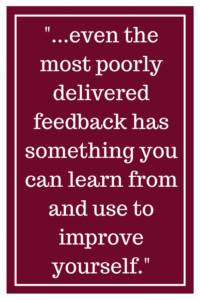The U.S. Navy SEALs have a saying: “Get comfortable being uncomfortable.” When are we uncomfortable? Often, it is when things aren’t fixed and we are in a growth mindset. We have all heard the need to have a growth mindset, but we need to spend some time considering why we are resistant to this mindset and what it means to where we are in our journey.
I am a firm believer in Dr. Carol Dweck’s research on ‘growth mindset’ and the power of believing you can improve. I also understand the ‘fixed mindset.’ Not because I have this mindset, but because I have interacted with a lot of people with a ‘fixed mindset.’ We must understand the need and reason for the ‘fixed mindset.’ Some people need the ‘fixed mindset’ to survive their circumstances in the same way someone like me has needed a ‘growth mindset’ to survive my circumstances and evolve beyond them.
 To gain what Dr. Dweck calls ‘the power of yet,’ we must first understand how someone came to have a ‘fixed mindset.’ This understanding can help you motivate someone, so they can start embracing challenges and unlocking their personal purpose. A ‘fixed mindset’ might come from a place of fear or someone might be risk-averse because their world was not safe at one time. Or it could be that they were rewarded for the status quo mindset. If you are going to help someone move forward and advance in their journey you must validate this fear. I have found even highly successful people can have a ‘fixed mindset’ and not realize their highest potential. Success or perceived success can give us false belief in our abilities and cause us to become complacent.
To gain what Dr. Dweck calls ‘the power of yet,’ we must first understand how someone came to have a ‘fixed mindset.’ This understanding can help you motivate someone, so they can start embracing challenges and unlocking their personal purpose. A ‘fixed mindset’ might come from a place of fear or someone might be risk-averse because their world was not safe at one time. Or it could be that they were rewarded for the status quo mindset. If you are going to help someone move forward and advance in their journey you must validate this fear. I have found even highly successful people can have a ‘fixed mindset’ and not realize their highest potential. Success or perceived success can give us false belief in our abilities and cause us to become complacent.
Dr. Dweck’s research states, “In a fixed mindset, people believe their qualities are fixed traits and therefore cannot change. These people document their intelligence and talents rather than working to develop and improve them. They also believe that talent alone leads to success, and effort is not required.”
How many of us have had a boss or known a leader who knew their abilities and weaknesses and accepted those weaknesses as unmoving traits? I personally have known a few. And aren’t we told to know our weaknesses and build upon our strengths? We can go beyond this process and allow our weaknesses to become our strengths if we adopt a ‘growth mindset’ and act as a sponge for feedback. I teach my social work graduate students to be sponges to feedback even if that feedback is not given in the most constructive way. I appreciate how hard it is to receive feedback from others, especially close colleagues or even strangers. I can also tell you it is one of the single most important things you can do for yourself if you want to improve and be a sought out thought leader in your industry and community. I find even the most poorly delivered feedback has something you can learn from and use to improve yourself.
My antidote for challenging yourself to adopt a ‘growth mindset’ is to recognize feedback in all its forms. You can take any and all feedback and figure out how you are best able to review and absorb that feedback. This might be a specific task you set for yourself related to the feedback or even a plan for reflection on how you could improve—whatever works best for you. You must also recognize the roadblocks you put up in receiving feedback. Do you tell yourself things like, “they don’t know me or my work” or “they are mad and taking it out on me.” If any internal conversations such as these are happening you are setting yourself up to not receive feedback. Additionally, thank people for taking the time to give you the feedback. Solicited or not, thank them. It is feedback and it can be impactful to your life.
To become unhindered in your life you must check your biases and ‘fixed mindsets’ and unleash untapped potential within yourself. This is not easy, but it is such a rewarding process to go through to find out who you are and what your purpose is for this thing we call life. Imagine where your journey can take you when every opportunity- good or bad -lends itself to improving the road to your purpose.
And what about those grad students who begrudgingly took feedback from professionals helping to mold them? They now sign their correspondence to me “Forever the sponge.”
Other articles you may be interested in:
- Difficult Conversations: Delivering Feedback Effectively by Julie Chance
- Timing Is Everything! by Jude Olson
- The Importance of Being Self-Aware by Deni Abbie
- Criticism: Delivering the Tough Message by Cobi Tittle












